The Elephant of Cotê D'Ivoire at the just-concluded 2023 African Cup of Nations (AFCON) produced the greatest comeback in the history of the biennial competition with outstanding display after picking up their pieces from the disappointing group stage in which they were almost unceremoniously knocked only to be saved by whiskers. No doubt, the Elephants of Cote d'Ivoire refused to be suppressed while the Football Federation had to sack the head coach, Jean-Louis Gasset, and was replaced with Emerse Fae.
Truly, Gasset’s side had endured an uninspiring group stage of the Africa Cup of Nations. The Elephants defeated Guinea-Bissau 2-0 in their opening game, lost to Nigeria, and were thrashed 4-0 by Equatorial Guinea in their last group game. The result against the National Thunder was the country’s heaviest defeat on home soil, and it took the Elephants’ fate in the competition out of their hands.
Cote d'Ivoire then produced a fairytale ending to the most remarkable run at the Africa Cup of Nations as Sebastian Haller’s winner completed a 2-1 comeback win over Nigeria in the final. How the Elephants of Cote d'Ivoire were able to turn the table around within the three weeks after they were hammered 4-0 by Equatorial Guinea to serve up a memorable win in the final match is something remarkable.
No wonder the epic win sparked wild celebrations in Abidjan. Of course, the team was very much the better side against a wingless Eagle in the opening 45 minutes, but William Troost-Ekong’s header against the run of play gave Nigeria an advantage at the break. The Super Eagles had conceded just two goals on their run to the final and, at the halfway stage, looked destined to grind out another narrow win.
Away from the historic win that climaxed the whole drama at the just-concluded AFCON, the whole tournament is full of upsets, with no country sure of what might become of them. AFCON is full of excitement, unexpected results, a last-minute win, penalty woes, one of which saw South Africa's Williams save four penalties in the shootout, and of course the VAR interventions, among others.
Taking a look at the group stage where the drama ensued, one will find out that the countries often regarded as minnows have several things up their sleeves.
Group A
In the relatively easy group, it was expected that Cote d'Ivoire and Nigeria would be neck and neck for the top spot. However, the equation changed as Equatorial Guinea, powered by Nsue, joined the fray, surpassing Nigeria and host Cote d’Ivoire. Equatorial Guinea, within the first two matches, amassed four points, one against Nigeria and three against Guinea-Bissau.
The Super Eagles once again created numerous scoring chances but failed to convert them, yet they concluded their group games with seven points. With the last game offering something to fight for, the Elephants, after the 'mistake' of losing to Nigeria in their second match, were overwhelmed 4-0 by the Equatorial Guinea side. 34-year-old Emiliano Nsue scored a brace to take his tally for the tournament to five goals, eventually earning him the "Highest Goal Scorer" award.
Cote d'Ivoire will only qualify as the last best loser from Group A with a paltry three points and a heavy minus five goal difference.
Group B
The Blue Sharks of Cape Verde were by all standards the best team, having become the first team to make it through to the round of 16, and they were supposed to take it easy in their last game against seven-time champions Egypt.
It looked like the Pharaohs were out for the kill, throwing everything at Cape Verde, looking for the opener, but as it has panned out, ball possession does not mean anything. The Cape Verdeans scored with their first shot and took the lead on the cusp of halftime. Sadness for the Egyptians, led by Mohamed Salah, who watched on from the stands
At that same time, Ghana’s Black Stars were through, having scored a 15th-minute penalty through Jordan Ayew. Egypt equalised in the 50th minute, but despite that, the Black Stars were in second place with four points. In the 70th minute, the Black Stars extended their lead through another penalty, taken by Jordan Ayew, and their passage seemed assured, but then madness ensued.
Geny Catamo pulled one goal back for Mozambique in the first minute of added time. Crossing over to the second game, Egypt scored a second goal in the third minute of added time, but they were still third on the table. Shaquille Nangy then equalised for Mozambique in the fourth minute of added time, sending Egypt into second place with four points and Ghana to third with two points.
But it was not over as substitute Bryan Teixeira equalised for Cape Verde in the ninth minute of added time. Game over for Ghana as Cape Verde finished with seven points, ahead of Egypt with three points, Ghana with two points, and Mozambique with one point. The Black Stars of Ghana and Egypt were eventually dumped out of the competition unceremoniously.
Overtly, the 36 games in the group phase came to a close with the African heavyweight knocked out of the tournament, while the host was also put in qualification jeopardy, only to be saved as it was another black day in Ghana’s football history. At the completion of the group stage, match days were able to produce 89 goals. Perhaps an interesting thing to know is that there were no scoreless results until the last group phase games.
The group fixtures were able to produce an average of 2.47 goals per game, which is a good output considering the heat and low humidity in Cote d’Ivoire. However, the misses by Africa's big football country eventually led to the loss of jobs as five coaches were relieved of their jobs.
The most high-profile were the coaches of Ghana and Cote d’Ivoire; Chris Hughton and Jean-Louis Gasset were dismissed, while Tam Sainfiet, Djamel Belmadi, and Jalel Kadri of The Gambia, Algeria, and Tunisia, respectively, resigned from their posts.
Looking at the famous top seven, five-time winners Ghana collapsed at the last minute against Mozambique and crashed out. The highest margin of defeat honour went to the hosts, Cote d’Ivoire and Namibia, while former champions, Algeria and Tunisia, had the ignominy of finishing bottom of their groups. Of all the famed No. 9s at the tournament, it is 34-year-old Emiliano Nsue from Equatorial Guinea who leads the scorers’ chart with five goals.
Nsue, who is registered as a midfielder and sometimes plays as a right-back for Spanish third-division side CF Intercity, also scored the first hat-trick in the tournament since Soufiane Alloudi against Namibia in 2008.
Teams from North Africa were in the frame of favourites coming to the 2023 AFCON, but two fell abysmally at the group stage, while the Pharaohs of Egypt, ranked by FIFA as number five in Africa, went through to the round of 16 with three points, garnered from three draws. Effectively, what has taken the Egyptians through is Mohamed Salah’s 97th-minute penalty against Mozambique on Matchday 1.
Also, Algeria, ranked 4th and 2019 champions, came last in Group D with two points, and they were beaten by 22nd-ranked Mauritania, the first-ever AFCON tournament win for the islanders. The storey was not different; Tunisia, ranked number 3, also came last in their group, losing to a Namibian team ranked number 27 on Matchday 1.
The highest-ranked team in Africa, the Atlas Lions of Morocco, has quickly forgotten about their magic wand used during the World Cup, which saw them play in the semi-finals only to be knocked out ingloriously. Going into AFCON 2023, Morocco are still the firm and clear favourites and have confirmed their status with two wins and a draw in Group E. Hakim Ziyech became the unlikely toast of Cote d’Ivoire as he scored the only goal of the game against Zambia, which instigated the Elephants’ qualification to the round of 16.
With no eyes on both Equatorial Guinea and Cape Verde as group winners, they opened a huge gap, and who would have thought that the likes of Mauritania and Namibia, best known for holidays, would upset the apple cart and send the horses scampering? AFCON 2023 has been littered with exciting and surprising moments.
The round of 16 fixtures also produced mouth-watering results as excitement rose among the remaining nations as to what would become of them. In the round of 16, the upsets continued as the Super Eagles of Nigeria, ranked 6th, defeated the Indomitable Lions of Cameroon, ranked 7th, 2-0, with both goals from Atalanta FC striker Ademola Lookman.
Angola, ranked 27th, also sent Namibia ranked 28 out of the tournament, while Mali then beat their brothers from Burkina Faso, the resurgent Elephant of Cote d'Ivoire, ranked eight, surprising the Teranga Lions of Senegal, ranked second out in an unexpected fashion.
The last upset of the round of 16 had Morocco ranked number one in Africa bowed to a Bafana Bafana of South Africa ranked 12 places away, while Cape Verde ranked 14th and knocked out Mauritania ranked 22nd, then the Pharaohs of Egypt ranked 5th got knocked out by the Leopards of DR Congo ranked 13th in the world. In the quarterfinals match, Nigeria continued its impressive run with a 1-0 win over Palancras Negras of Angola, while DR Congo 3-1 Guinea was a masterclass, and then host Cote d'Ivoire waited till extra time to beat the Eagles of Mali.
AFCON 2023 suffered another casualty as high-flying Cape Verde could not continue as they went down against South Africa 1-2 pens after penalty. The semi-finals then produced a relatively nice result as Nigeria edged out South Africa while the host, now energized, defeated DR Congo.
Winners and Losers
Victor Osimhen (Nigeria, Loser)

The reigning African Footballer of the Year, Victor Osimhen, was the greatest loser of the tournament, as he failed to register more than a goal throughout the tournament in spite of the fact that his team, Nigeria, played all through the finals.
Emerse Fae (Ivory Coast, Winner)
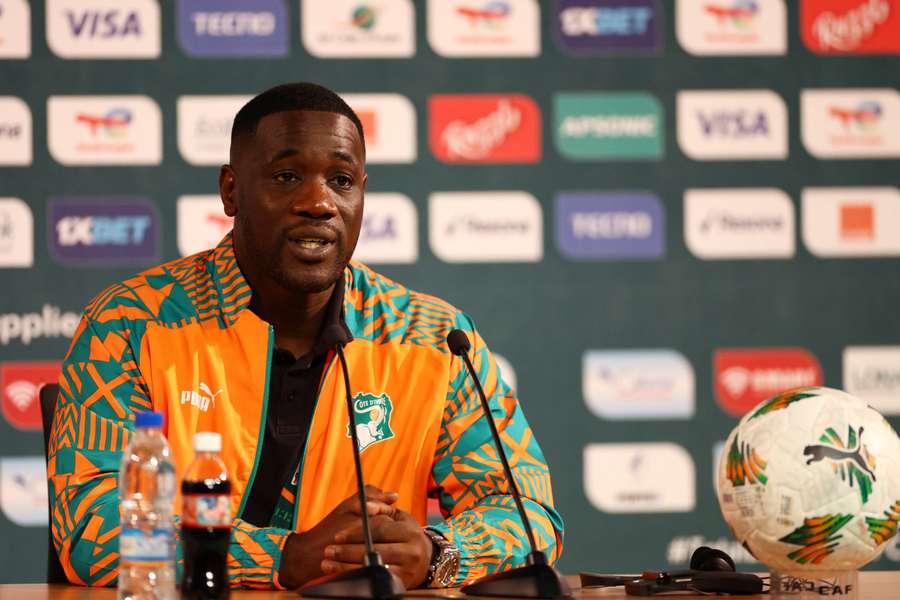
Emerse Fae's journey at this year's AFCON is a storey of grass to grace. The 40-year-old came into this tournament as his nation's assistant coach, and now, on the last day, he became a huge winner, guiding his country to their third AFCON title. The hosts' dreams appeared to be in the bin as they suffered their worst-ever defeat in the tournament with a 4-0 defeat at the hands of Equatorial Guinea. The result led to the dismissal of head coach Jean-Louis Gasset two days later.
Fae was put in charge following Gasset's exit, and after Ghana's stoppage-time collapse and Zambia's defeat to Morocco, the former Reading man got the chance to lead his nation into the last 16 as they ranked among the four best third-placed sides. The hosts battled hard and caused one of the many upsets of this year's tournament by knocking defending champions Senegal out; thereafter, DR Congo zoomed into the final.
Sebastian Haller (Cotê D'Ivoire, Winner)
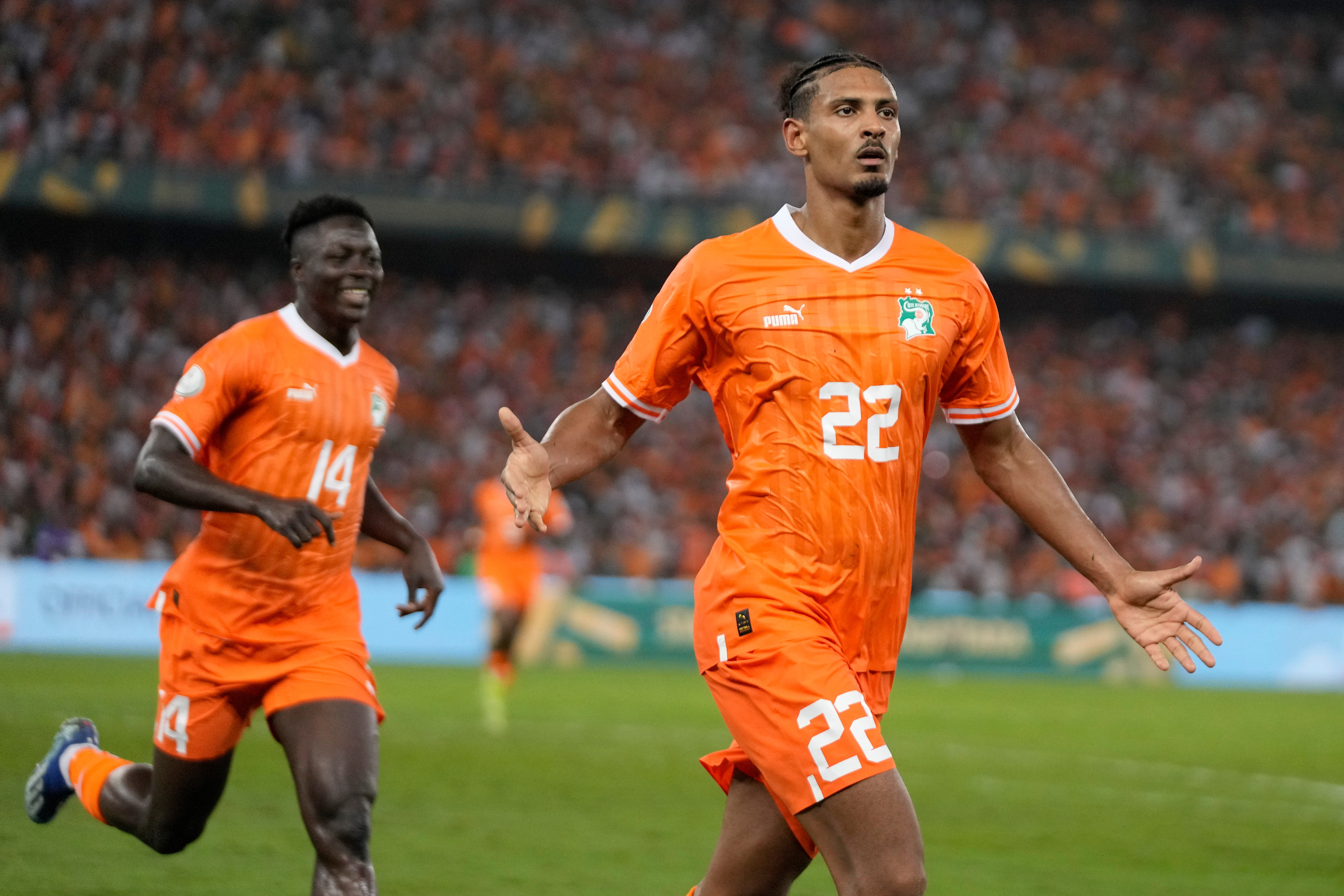
The Sebastien Haller story is quite an interesting one as a man who survived a cancer scare to become the AFCON hero for his country, Cote d'Ivoire. Haller has not only made a name for himself but has also etched his mark in the annals of football history with his stunning goal against Nigeria. He has also shown such a trait in the past with his remarkable feat that neither Messi nor Ronaldo can boast of—scoring 11 goals in his first seven Champions League games.
After a huge leap in 2017, Haller made a high-profile transfer to Eintracht Frankfurt in the Bundesliga, where he continued to dazzle fans with his clinical finishing and aerial ability. He announced himself on the European stage, delivering standout performances in the UEFA Europa League and earning widespread acclaim for his contributions to the team's success. His move to Ajax in 2020 truly catapulted him into the spotlight. joining the Dutch giants for an audacious £22.5 million fee.
In 2022, the then-27-year-old returned to the Bundesliga, this time with Borussia Dortmund. Sadly, weeks into his arrival at Signal Iduna Park, he was diagnosed with testicular cancer and went under the knife. This ensured that he was sidelined for six months before eventually breaking through to make his debut and return to professional football at the start of 2023. Just a few months after his survival from cancer, Haller is now an AFCON champion.
Williams Troost-Ekong (Nigeria, winner)
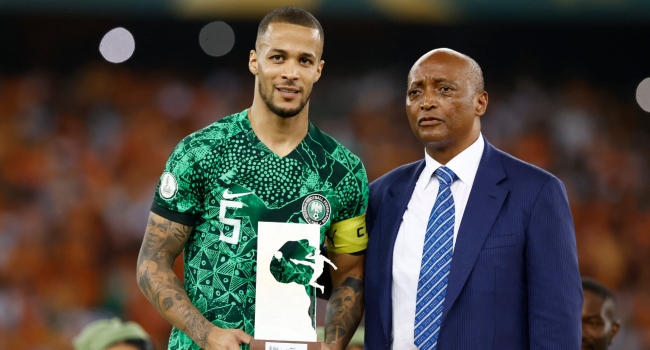
The Super Eagles’ stand-in captain, William Troost-Ekong, being crowned the Best Player of the 2023 Africa Cup of Nations was significant, a distinction bestowed upon him by the Confederation of African Football. Troost-Ekong showcased an outstanding performance throughout the tournament, despite Nigeria falling short in the final against hosts Cote d’Ivoire with a 2-1 defeat.
The 30-year-old defender’s exceptional contributions did not go unnoticed, earning him the prestigious Man of the Tournament award. Troost-Ekong netted three crucial goals during the 34th edition of the continental championship, including Nigeria’s only goal in the nail-biting encounter against the Elephants. Remarkably, Troost-Ekong’s goal tally at AFCON 2023 propels him into the record books as the highest-scoring defender in the history of the competition, with an impressive total of five goals.
Emilio Nsue (Equatorial Guinea, winner)
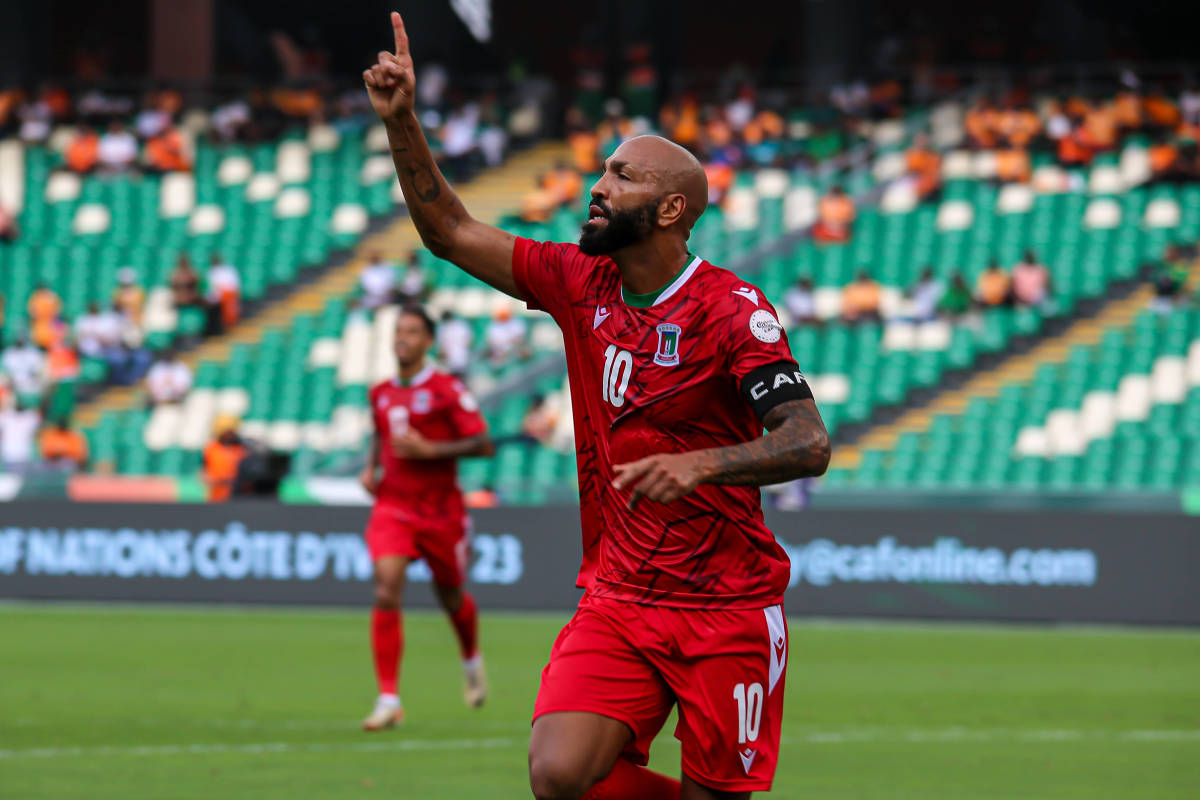
As the individual triumph continues to take centre stage, Equatorial Guinea’s Emilio Nsue emerged as the tournament’s top scorer. Additionally, South Africa’s Ronwen Williams secured the title of Best Goalkeeper, beating Nigeria’s Stanley Nwabali to the honour. After conceding twice against Cote d’Ivoire, Nwabali tallied four clean sheets at the AFCON, one fewer than Williams’ haul.
Other Prizes
TotalEnergies Best Player: William Troost-Ekong (Nigeria)
Puma Golden Boat: Emilio Nsue Lopez
Ecobank Best Goalkeeper: Ronwen Williams (South Africa)
Fair-Play Team: South Africa.





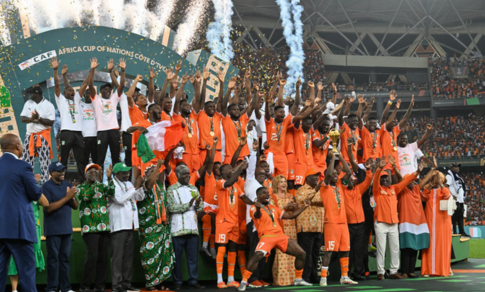







ADD A COMMENT :